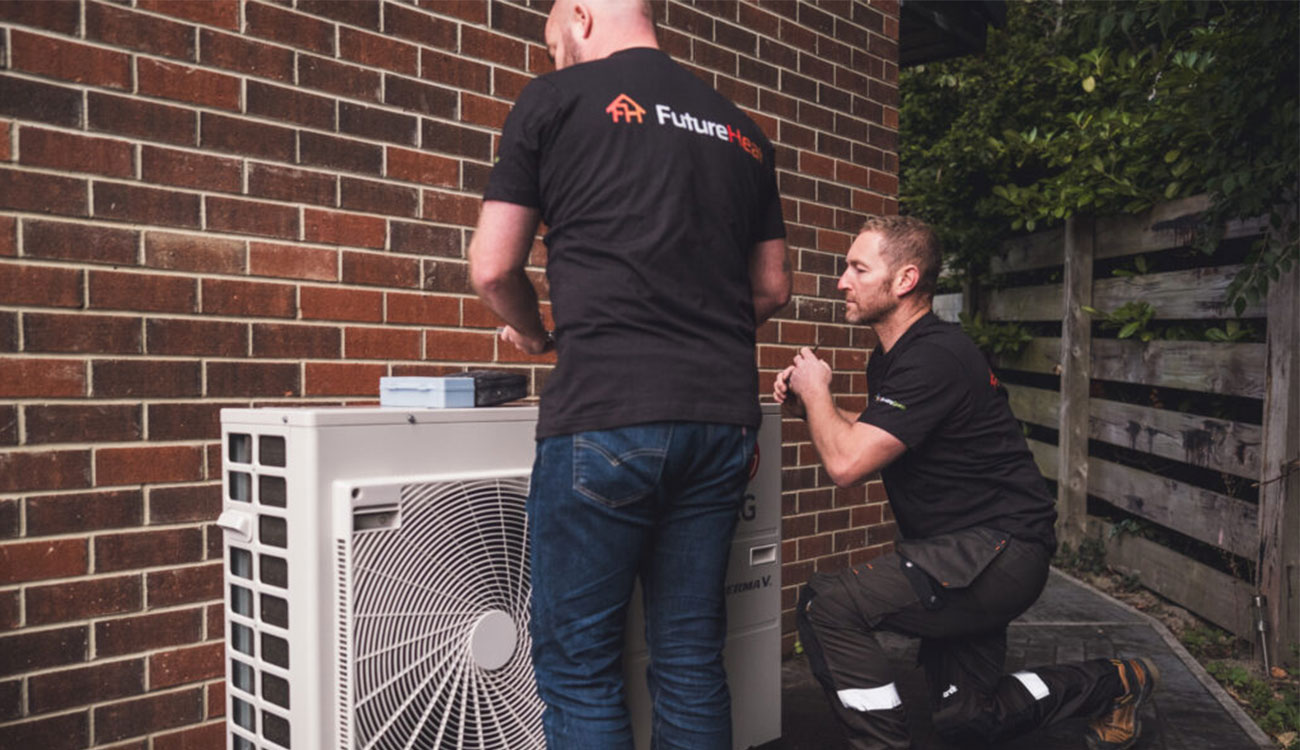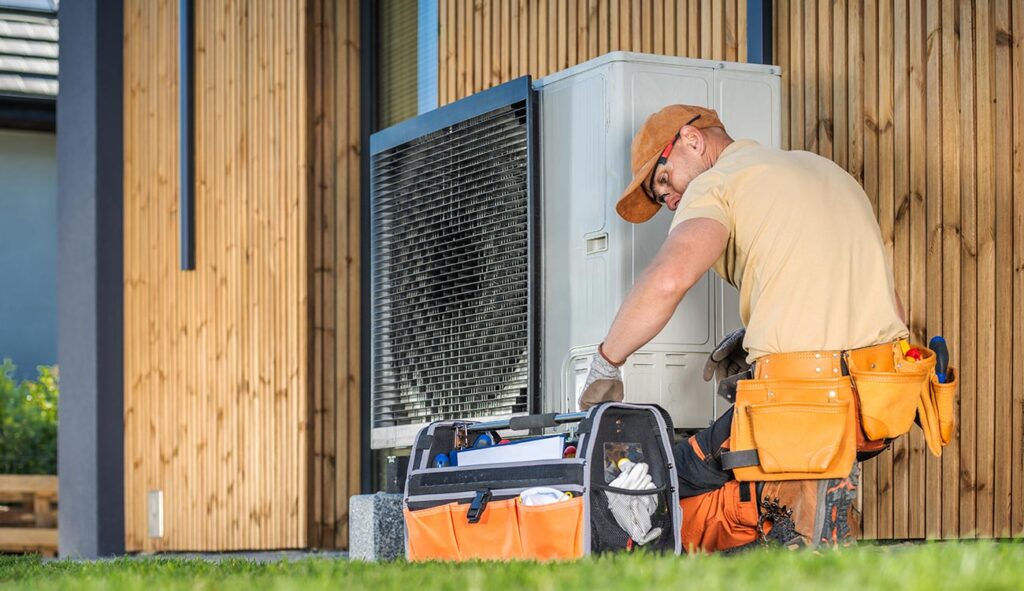Introduction
As the UK moves towards a Net Zero future, heat pumps are quickly becoming a major part of home heating solutions. This shift presents a great opportunity for gas engineers to future proof their careers by upskilling into the renewable energy sector. If you’re currently working as a gas engineer, switching to heat pump installation can open the door to higher earnings, greater flexibility, and a more sustainable profession.
How to Become a Heat Pump Engineer in the UK
If you’re a qualified gas engineer, the route to becoming a heat pump engineer is straightforward.
1. Meet the Entry Requirements
To take a BPEC-certified heat pump course, you must:
- Be a qualified plumber, gas engineer, heating engineer or oil engineer.
- Hold a recognised NVQ Level 2/3 qualification (or an earlier equivalent).
- Have a valid Water Regulations/Bylaws certificate, if not already included in your formal qualifications.
2. Take a Certified Training Course
At Future Group Training, we offer a Domestic Air Source Heat Pump 3-Day Course – BPEC, which is specifically designed for professionals like you. This intensive course is hands-on and practical, covering everything from system design and installation to commissioning.
Upon successful completion, you’ll receive a BPEC certificate, officially recognising your new qualification as a heat pump installer.
3. Start Taking on Heat Pump Work
Once qualified, you can begin offering heat pump installations – either as a self-employed engineer or through an employer.
At Future Group, we even offer a £62,000 basic salary to experienced air source heat pump engineers. And for those who are self-employed and able to complete high volumes of installations, earnings of up to £75,000 per year are achievable.
Benefits of Doing Both Boilers and Heat Pumps
One of the smartest moves for any gas engineer is to diversify. You don’t have to choose between boilers and heat pumps – many engineers continue doing both.
Why this matters:
- Increased income potential: More services = more bookings.
- Wider client base: Cater to both traditional and eco-conscious homeowners.
- Futureproof career: Be ready for the gradual shift toward renewables.
FAQ’s
No. Most engineers continue offering boiler services while expanding into heat pump work. It’s a flexible career path that allows you to do both.
Future Group Training’s Domestic Air Source Heat Pump Course takes just 3 days to complete.
Yes. The course is BPEC-certified, and successful candidates receive a BPEC qualification that is widely accepted across the UK.
Experienced heat pump engineers can earn up to £75K per year if self-employed and completing high volumes of installations. Future Group also offers a £62K basic salary for experienced engineers.
Yes – if your NVQ or equivalent qualification doesn’t already include it, you’ll need to hold a valid Water Regulations/Bylaws certificate.
Training is available at Future Group Training in Newcastle. Our address is Unit 2c Rekendyke Industrial Estate, South Shields, NE33 5BZ
Ready to Futureproof Your Career?
If you’re a gas engineer looking to take the next step, becoming a heat pump installer is a smart move. With the right training, you can stay ahead of industry changes, earn more, and take pride in supporting the UK’s green energy goals.
Future Group Training is here to guide you every step of the way.
Luke Angelo is the Director of Angelo Web Design, a digital agency dedicated to helping businesses grow through high-impact web design and online marketing. With years of experience working with companies in the renewable energy sector, Luke brings a unique understanding of sustainability-focused branding and communication. His passion for climate action drives him to support green businesses in making a bigger impact online.


